
A meeting of three master improvisers but also three friends and frequent collaborators of Ivo Perelman on tenor sax, Matthew Shipp on piano, and Whit Dickey on drums, their familiarity showing in a collective compatibility and assurance heard especially in this studio album of exploratory discourse, each piece aptly dedicated to a precious jewel.
Out of Stock
Quantity in Basket: None
Log In to use our Wish List
Shipping Weight: 3.00 units
Sample The Album:
Ivo Perelman-tenor saxophone
Matthew Shipp-piano
Whit Dickey-drums
Click an artist name above to see in-stock items for that artist.
UPC: 642623800423
Label: Tao Forms
Catalog ID: TAO 004CD
Squidco Product Code: 30095
Format: CD
Condition: New
Released: 2021
Country: USA
Packaging: Digipack - 3 panel
Recorded at Park West Studios, in Brooklyn, New York, by Jim Clouse.
"Their collective sound is sophisticated in its inventiveness and elegant in its fury. Garden of Jewels demonstrates, once again, that Perelman is a uniquely accomplished artist whose prolific output is matched only by his brilliance. This intriguingly explorative work delights with its textured construct, thanks in great part to Perelman's equally innovative colleagues. The sublime album is cerebral without being abstruse and visceral while eschewing self-indulgence and, as such, is a gem in its own right." -Hrayr Attarian, Chicago Jazz Magazine
One of the most exhilarating qualities shared by great improvising musicians is the ability to bring one's immediate situation - the joys, sorrows, fears and desires of the day - into each unique performance. What made this most recent convening of the Ivo Perelman Trio so singular was the fact that not only were all three musicians - prolific saxophonist Ivo Perelman, pianist Matthew Shipp, and drummer Whit Dickey - immersed in the same present-day miasma, so was every potential listener, wherever they might be.
Garden of Jewels was recorded in June 2020 as the coronavirus pandemic raged across the globe. On the day that these three longtime collaborators warily (and safely) entered the studio for the first time since the virus forced us indoors, the un-precedented circumstances provided the trio a profoundly urgent source of inspiration. At the same time, the country was in the midst of a series of turbulent protests that added an additional layer of vitality to the proceedings.
"There was so much creative tension in the air," Perelman recalls. "It was the first time that I came out of hibernation in my Brooklyn apartment, where I'd been focused on playing the saxophone for many, many hours every day while listening to sirens outside and wondering what life was about. Matt, Whit and I came together and cathartically created music out of all this mess."
While Garden of Jewels is only the second time that Perelman, Shipp and Dickey have recorded as a trio - the first, Butterfly Whispers, was released in 2015 - all three share a long and rich history. Shipp and Dickey, of course, worked together as integral members of the David S. Ware Quartet & in Shipp's own Trio, while the pianist and Perelman have spent the last decade creating one of the most well-documented partnerships in improvised music history.
The trio entered the studio without having discussed what might transpire at the session - the eight tracks that resulted provide vivid evidence of the band's deft spontaneity, kaleidoscopic versatility and deeply felt camaraderie. It's also the latest glimpse of the ongoing evolution of their collective identity. "We're like scientists dealing with sound," Perelman says with a chuckle. "Each recording is a means to check our development."
Also of note here is Perelman's revived interest in jewelry-making, which Perelman initially took up 20 years ago and resumed shortly before the pandemic. One example of his recent work graces the cover of Garden of Jewels. In addition to suggesting its title, the graceful, elegant piece seems to materialize the fluid swoops and whorls of Perelman's tenor sax lines into golden arabesques.
These pursuits not only provide an outlet for Perelman's indefatigable creativity, but a source of light amidst the darkness of the present era. That balance is one that Perelman says the trio felt that June day in New York, and one whose energy pervaded beyond the studio walls.
"There was a dark energy surrounding all of us, counterbalanced by the sheer power of creation. We had to become an antenna to capture the angst and anxiety of the times and transform it into art and catharsis. There was a social function to that music, not just for us but for anyone who might hear it one day. I left the studio with a new soul."
"-Tao Forms
Artist Biographies
• Show Bio for Ivo Perelman "Born in 1961 in São Paulo, Brazil, Perelman was a classical guitar prodigy who tried his hand at many other instruments - including cello, clarinet, and trombone - before gravitating to the tenor saxophone. His initial heroes were the cool jazz saxophonists Stan Getz and Paul Desmond. But although these artists' romantic bent still shapes Perelman's voluptuous improvisations, it would be hard to find their direct influence in the fiery, galvanic, iconoclastic solos that have become his trademark. Moving to Boston in 1981, to attend Berklee College of Music, Perelman continued to focus on mainstream masters of the tenor sax, to the exclusion of such pioneering avant-gardists as Albert Ayler, Peter Brötzmann, and John Coltrane (all of whom would later be cited as precedents for Perelman's own work). He left Berklee after a year or so and moved to Los Angeles, where he studied with vibraphonist Charlie Shoemake, at whose monthly jam sessions Perelman discovered his penchant for post-structure improvisation: "I would go berserk, just playing my own thing," he has stated. Emboldened by this approach, Perelman began to research the free-jazz saxists who had come before him. In the early 90s he moved to New York, a far more inviting environment for free-jazz experimentation, where he lives to this day. His discography comprises more than 50 recordings, with a dozen of them appearing since 2010, when he entered a remarkable period of artistic growth - and "intense creative frenzy," in his words. Many of these trace his rewarding long-term relationships with such other new-jazz visionaries as pianist Matthew Shipp, bassists William Parker, guitarist Joe Morris, and drummer Gerald Cleaver. Critics have lauded Perelman's no-holds-barred saxophone style, calling him "one of the great colorists of the tenor sax" (Ed Hazell in the Boston Globe); "tremendously lyrical" (Gary Giddins); and "a leather-lunged monster with an expressive rasp, who can rage and spit in violence, yet still leave you feeling heartbroken" (The Wire). Since 2011, he has undertaken an immersive study in the natural trumpet, an instrument popular in the 17th century, before the invention of the valve system used in modern brass instruments; his goal is to achieve even greater control of the tenor saxophone's altissimo range (of which he is already the world's most accomplished practitioner). Perelman is also a prolific and noted visual artist, whose paintings and sketches have been displayed in numerous exhibitions while earning a place in collections around the world." ^ Hide Bio for Ivo Perelman • Show Bio for Matthew Shipp "Matthew Shipp was born December 7, 1960 in Wilmington, Delaware. He started piano at 5 years old with the regular piano lessons most kids have experienced. He fell in love with jazz at 12 years old. After moving to New York in 1984 he quickly became one of the leading lights in the New York jazz scene. He was a sideman in the David S. Ware quartet and also for Roscoe Mitchell's Note Factory before making the decision to concentrate on his own music. Mr Shipp has reached the holy grail of jazz in that he possesses a unique style on his instrument that is all of his own- and he's one of the few in jazz that can say so. Mr. Shipp has recorded a lot of albums with many labels but his 2 most enduring relationships have been with two labels. In the 1990s he recorded a number of chamber jazz cds with Hatology, a group of cds that charted a new course for jazz that, to this day, the jazz world has not realized. In the 2000s Mr Shipp has been curator and director of the label Thirsty Ear's "Blue Series" and has also recorded for them. In this collection of recordings he has generated a whole body of work that is visionary, far reaching and many faceted." ^ Hide Bio for Matthew Shipp • Show Bio for Whit Dickey "Whit Dickey (born May 28, 1954, New York City) is a free jazz drummer. He has recorded albums as a bandleader, with David S. Ware, Matthew Shipp and others. Free jazz drummer Whit Dickey first stepped into the spotlight as a leader with the release of his Transonic album from Aum Fidelity in 1998. Two years later, Wobbly Rail issued his Big Top release. Previously, he was best known for his solid work with Matthew Shipp and David S. Ware, with whom Dickey split in 1996. Early the following year, the drummer began composing the works that would be included on Transonic. Dickey penned all but two songs, "Kinesis" and "Second Skin," on the collection, and he even had a hand in those with the help of his fellow musicians on the album. The original compositions give a nod to the influence of "Criss Cross" and "Off Minor" from the legendary Thelonious Monk. Dickey recorded the album with the aid of Rob Brown on flute and alto saxophone, and Chris Lightcap on bass. In 2001, Dickey recorded half a dozen of his compositions with Mat Maneri, Shipp, and Brown under the name Nommonsemble, and put out Life Cycle through Aum Fidelity. Whit Dickey made a name for himself as the former drummer of David S. Ware's famous quartet. Since then Dickey's musical contributions have gone well beyond his work as Ware's drummer. He is capable of tremendous power and yet has the ability for subtle gesture. Dickey is a composer as well as a drummer and his music has reached new heights in his recent small group work, with a coterie of great musicians including alto saxophonist Rob Brown. He has been performing with Matthew Shipp since 1991 and continues to play and record with Roy Campbell Jr., Mat Maneri, Chris Lightcap and many others. Since 2007 Dickey has been focussing on developing an integrative improvisational style while working with Shipp's Trio. Daniel Carter and Dickey recorded an album pianist Eri Yamamoto in 2008. The album Art of the Improvisor from The Matthew Shipp Trio received much critical acclaim and was listed as one of the year's best of 2011. Dickey has started a cooperative unit with Sabir Mateen & Michael Bisio, which is another example of post- Coltrane integral unity, and is call Blood Trio. Shipp, Bisio and Dickey have also been working with Ivo Perelman in various configurations." ^ Hide Bio for Whit Dickey
3/31/2025
Have a better biography or biography source? Please Contact Us so that we can update this biography.
3/31/2025
Have a better biography or biography source? Please Contact Us so that we can update this biography.
3/31/2025
Have a better biography or biography source? Please Contact Us so that we can update this biography.
Track Listing:
1. Garden Of Jewels 6:09
2. Tourmaline 4:51
3. Amethyst 6:51
4. Onyx 7:12
5. Turquoise 7:20
6. Emerald 6:48
7. Sapphire 6:20
8. Diamond 5:25
Improvised Music
Jazz
Free Improvisation
NY Downtown & Metropolitan Jazz/Improv
Trio Recordings
Collective Free Improvsation
Search for other titles on the label:
Tao Forms.


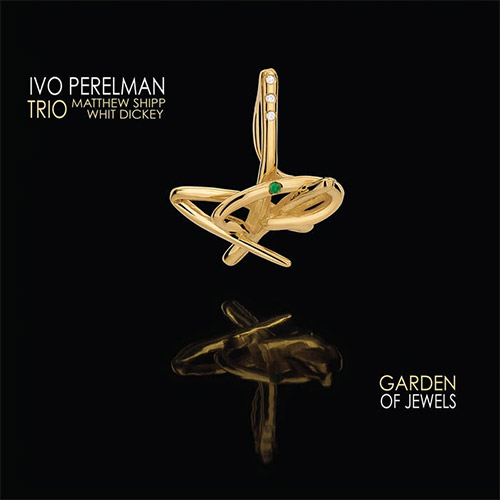


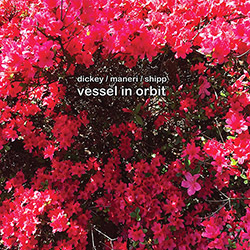



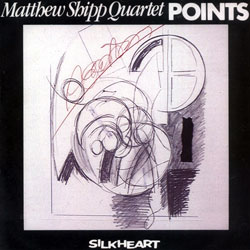
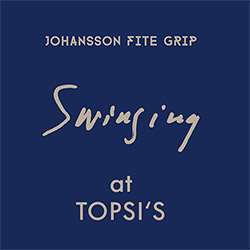
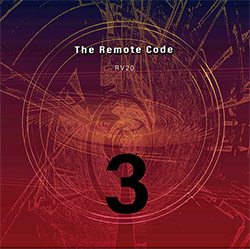
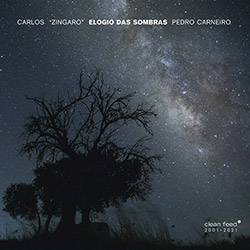


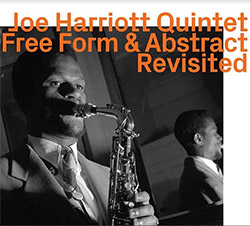
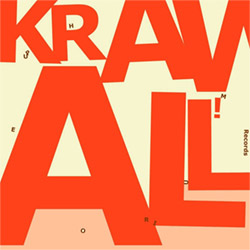
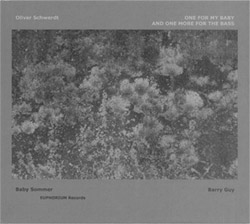
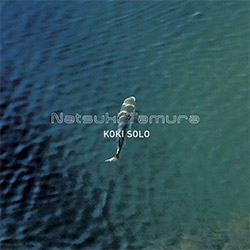
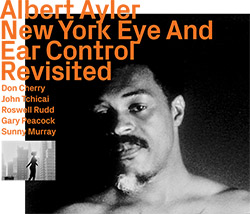
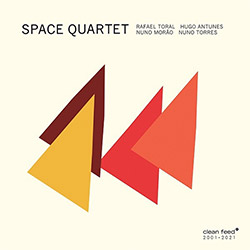

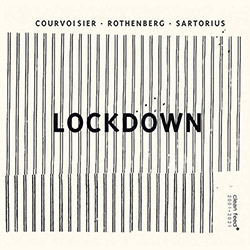

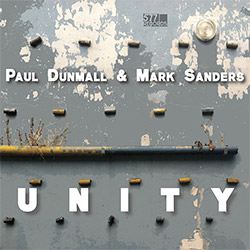

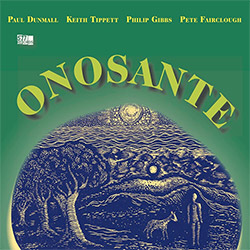



![Rodrigues, Ernesto / Nuno Torres / Guilherme Rodrigues: Whispers In The Moonlight - In Seven Movements [2CDs]](https://www.teuthida.com/productImages/misc4/35765.jpg)



![Cocks, Laura: FATHM [VINYL]](https://www.teuthida.com/productImages/misc4/36055.jpg)










![Ackerley / Prymek / Turner: All Hope With Sleeping Minds [CASSETTE]](https://www.teuthida.com/productImages/misc4/35950.jpg)
![Myers, David Lee : Tin Drop Tear [BOOK w/ DOWNLOAD]](https://www.teuthida.com/productImages/misc4/36030.jpg)



![Schindler, Udo / Sandy Ewen / Damon Smith: Munich Sound Studies Vols. 4, 5 & 6 [3 CDs]](https://www.teuthida.com/productImages/misc4/35966.jpg)






![Turbulence Orchestra & Sub-Units: Smear Out the Difficulties (Double Live) [2 CDs]](https://www.teuthida.com/productImages/misc4/36048.jpg)
![Perelman, Ivo / Tyshawn Sorey: Paralell Aesthetics [2 CDs]](https://www.teuthida.com/productImages/misc4/35871.jpg)


![Sjostrom, Harri: SoundScapes #4 Festival Berlin 2023 [3 CDs]](https://www.teuthida.com/productImages/misc4/35874.jpg)



![Glenn, Jordan: Flustered [CASSETTE]](https://www.teuthida.com/productImages/misc4/35948.jpg)


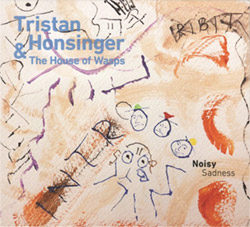
![Lindorff-Ellery, Evan: Church Recordings from Monhegan [CASSETTE]](https://www.teuthida.com/productImages/misc4/35949.jpg)
![Schindler, Udo / Werner Dafeldecker / Gunnar Geisse: Travelling Sound Images - Cognitive Transfers [Trio]](https://www.teuthida.com/productImages/misc4/35767.jpg)

![Egberth, Dennis: The Dennis Egberth Dynasty [VINYL]](https://www.teuthida.com/productImages/misc4/35549.jpg)


![Schindler, Udo / Rieko Okuda / Eric Zwang Eriksson: Disturbed Terrains [2 CDs]](https://www.teuthida.com/productImages/misc4/35330.jpg)






![Olencki, Weston : Pearls Ground Down To Powder [VINYL]](https://www.teuthida.com/productImages/misc4/35956.jpg)
![Myers, David Lee: Oculus [2CDs]](https://www.teuthida.com/productImages/misc4/35857.jpg)


![dustsceawung: dustsceawung [CASSETTE w/ Download]](https://www.teuthida.com/productImages/misc4/35753.jpg)




![Halls of the Machine: Atmospheres For Lovers And Sleepers [CASSETTE w/ DOWNLOAD]](https://www.teuthida.com/productImages/misc4/35806.jpg)



![AHC (Alexander Cooper): Lase [2 CDs]](https://www.teuthida.com/productImages/misc4/35754.jpg)



![Fagaschinski, Kai / Yan Jun : Graveyard Processions [VINYL w/ DOWNLOAD]](https://www.teuthida.com/productImages/misc4/35474.jpg)
![Brant, Cody / Carl Kruger: Smoke Detail [CASSETTE w/ DOWNLOAD]](https://www.teuthida.com/productImages/misc4/35551.jpg)








![Zorn, John / JACK Quartet: The Complete String Quartets [2 CDs]](https://www.teuthida.com/productImages/misc4/35609.jpg)

![Lonsdale, Eden: Dawnings [2 CDs]](https://www.teuthida.com/productImages/misc4/35480.jpg)







![Sanna, Claudio: Compositori Sardi Contemporanei II [2 CDs]](https://www.teuthida.com/productImages/misc4/35317.jpg)







![Zurria, Manuel: Fame di Vento [3 CDs]](https://www.teuthida.com/productImages/misc4/35167.jpg)

![Granberg, Magnus / Nattens Inbrott / Skogen: Holde Traume, Kehret Wieder! [2 CDs]](https://www.teuthida.com/productImages/misc4/35038.jpg)

![Electric Bird Noise / Derek Roddy: 8-10-22 [CD EP]](https://www.teuthida.com/productImages/misc4/35970.jpg)








![Elephant9 : Mythical River [VINYL]](https://www.teuthida.com/productImages/misc4/34624.jpg)



![Elephant9 with Terje Rypdal: Catching Fire [VINYL 2 LPs]](https://www.teuthida.com/productImages/misc4/35355.jpg)
![Deerlady (Obomsawin, Mali / Magdalena Abrego): Greatest Hits [VINYL]](https://www.teuthida.com/productImages/misc4/34876.jpg)







![Surplus 1980: Illusion of Consistency [CD]](https://www.teuthida.com/productImages/misc4/35069.jpg)
![Staiano, Moe: Away Towards the Light [VINYL + DOWNLOAD]](https://www.teuthida.com/productImages/misc4/35037.jpg)



![Caveira (Gomes / Sousa / Abras / Ferrandini): Ficar Vivo [VINYL]](https://www.teuthida.com/productImages/misc4/34643.jpg)
![Coley, Byron: Dating Tips for Touring Bands [VINYL]](https://www.teuthida.com/productImages/misc4/17906.jpg)

![Lost Kisses: My Life is Sad & Funny [DVD]](https://www.teuthida.com/productImages/misc4/lostKissesDVD.jpg)